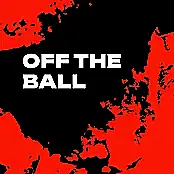When FIFA president Gianni Infantino first proposed a 48 team World Cup, the plan was quite shoddy.
Initially, his proposal was for a preliminary round with 32 teams playing each other in a straight knockout stage, with the 16 winners advancing to a group stage already featuring 16 seeded teams.
The unfortunate side effect for teams was that countries knocked out in the preliminary round would play once and then go home which really wouldn't qualify as a "World Cup experience" in anyone's book.
But after a vote on Tuesday, an amended 48 team World Cup plan has been approved by FIFA, beating the 32 team version and the initial Infantino idea.
That means from the 2026 World Cup, an extra 16 teams will qualify for world football's showpiece international tournament.
The approved 48 team plan sees a group stage with three teams split into 16 groups. The top two from each group would then make it into the last 32 knockout round.
As always happen when change occurs, there are pros and cons depending on your perspective.
Format and fixture congestion
FIFA's approved expansion is an improvement on the first idea proposed, in that all 48 teams that qualify are guaranteed more than one game at the World Cup.
A group of three teams means the bottom side will be eliminated from the competition having played two matches, which is one fewer than the 32 team version. It's a halfway house compromise between going home after one game and exiting after three.
For teams that make it all the way to the final, there is no reduction in the number of games, as they will still play in seven World Cup fixtures during the tournament which is the same as now.
The one positive is that the group stage will not include any dead rubber games so if, for example, Germany win their first two group matches (usually enough to qualify for the next round in a four team group), their third fixture will be a straight knockout tie.
Two matches rather than three in a group leaves little margin for error even against weaker opposition.

Gianni Infantino
Quality versus spreading the game
As French football writer Philippe Auclair said when Infantino initially proposed an expansion, "If you have 48 teams, you have one quarter of all the FAs in the world of all nations represented in the final tournament which is completely absurd".
Even the current 32 team version of the World Cup sometimes throws up the occasional quality deficit in some group games involving weaker nations.
As we have seen in the last couple of major tournaments, the quality of international football is not necessarily at its peak at present with no absolutely outstanding teams - I include world champions Germany and Euro 2016 winners Portugal in that!
The expanded Euro 2016 did not prove a disaster in terms of quality as some may have feared with some fairytale stories like Iceland and Wales catching the eye, and a memorable summer from an Irish perspective north and south.
The quality of football was not particularly eye catching though it must be said.
An expansion would mean that approximately three extra European teams would qualify per 48 team World Cup which would mean a total of 16 teams - i.e. the same number as the pre-expansion Euros. So from an Irish angle, for example, it doesn't exponentially increase our chances of qualifying.
FIFA's plan is to open up far more places to the confederations of Africa and Asia which on one level is honorable as the current status quo makes it difficult for vast swathes of those continents' countries to qualify for a World Cup.
However, while the top nations from CAF and the AFC can more than hold their own at World Cups (think Japan, Ivory Coast, South Korea etc), significantly weaker footballing teams would make it through reducing the level of quality at the final tournament.
While it would be nice for those nation's fans to see their teams on the grandest stage, for neutral observers the matches themselves would suffer.
For FIFA, the advantage of expansion is clear in one regard as the Financial Times revealed the financial windfall that would be generated for football's world governing body.
The European Club Association also claimed a political motive for expansion within an organisation with 211 member associations many of whom are from confederations that would benefit most from expansion.
That being said, there have been improvements for national teams outside Europe and South America over the decades and by 2026, it is possible that any existing gaps may be reduced in the next nine years.
Download the brand new GoLoud App in the Play Store & App Store right now! We've got you covered!
Subscribe to OffTheBall's YouTube channel for more videos, like us on Facebook or follow us on Twitter for the latest sporting news and content.








